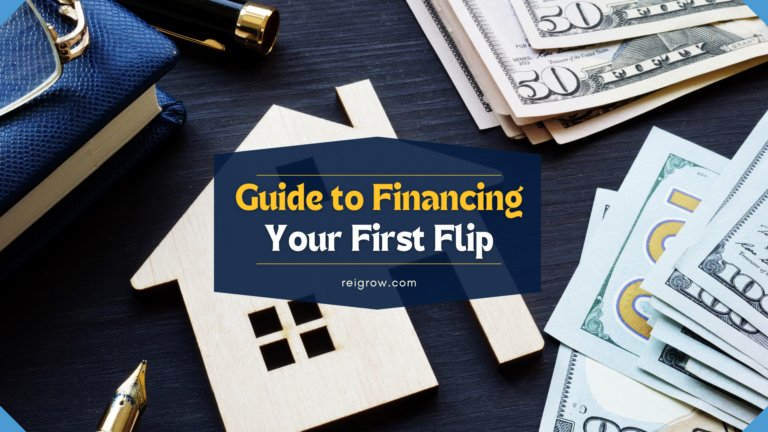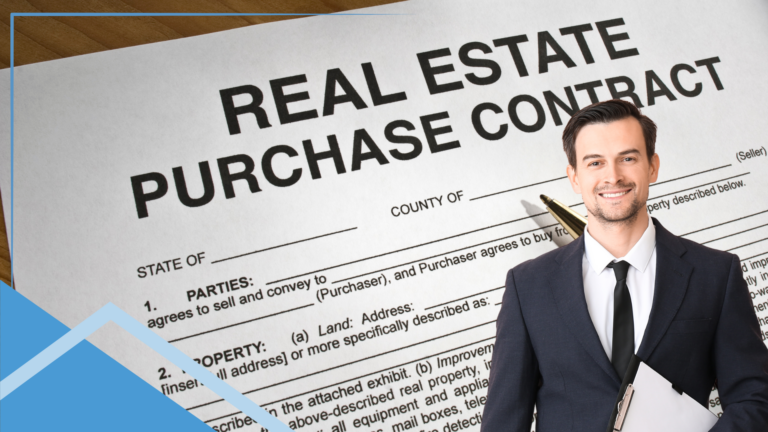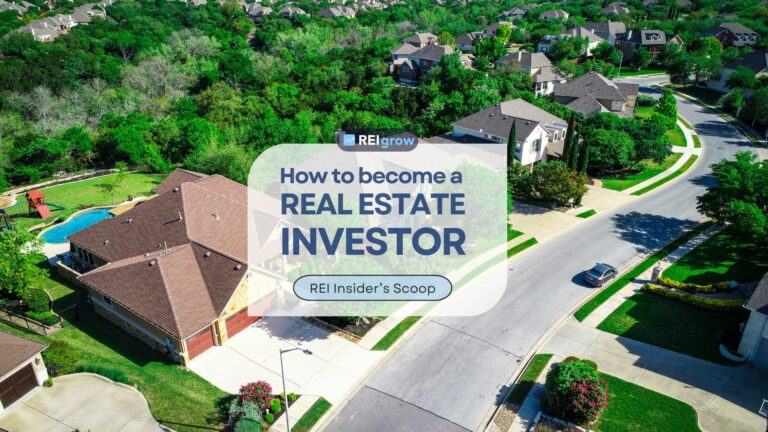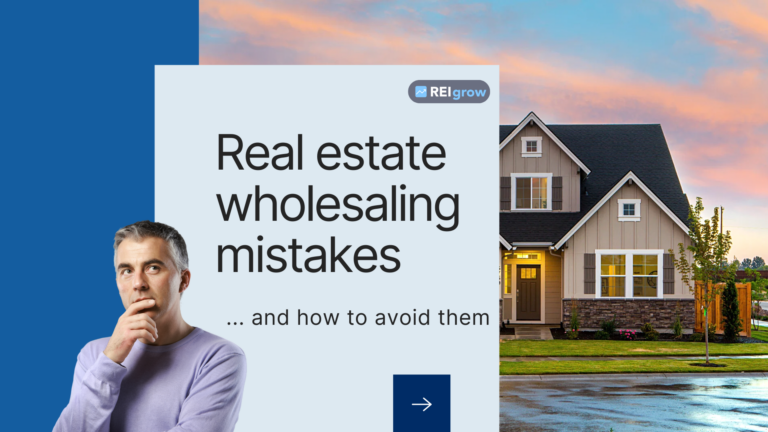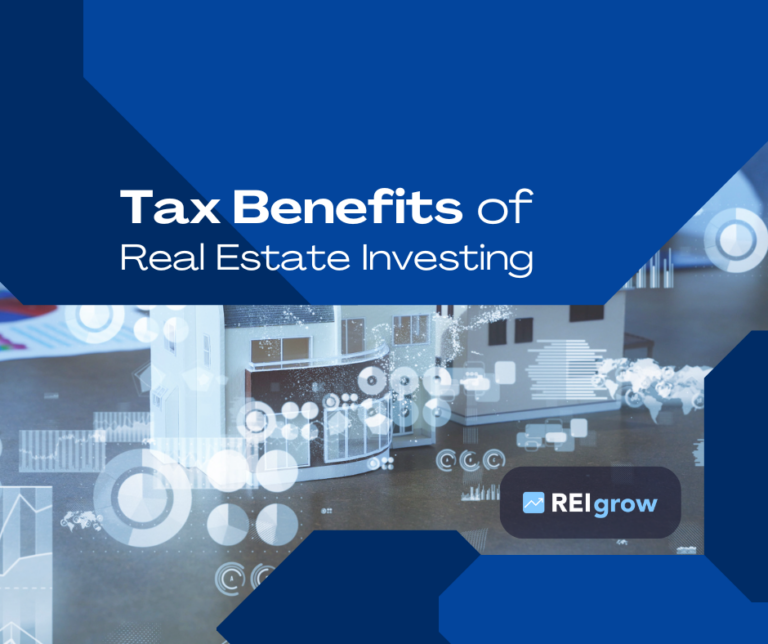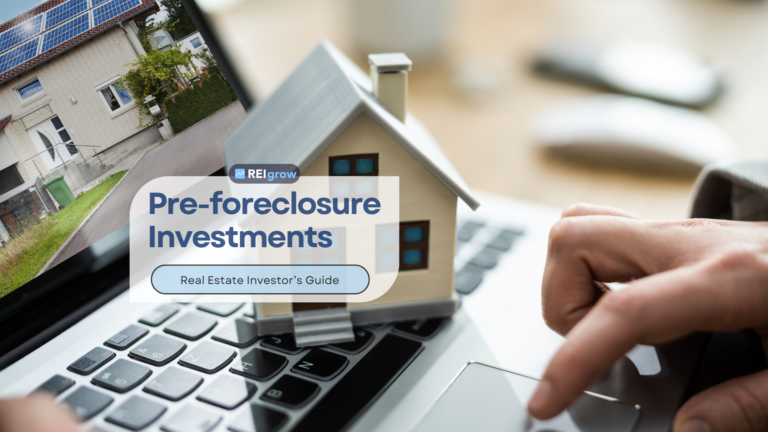Beginner’s Guide to Real Estate Wholesaling
Are you a real estate investor? Do you want to learn how to wholesale real estate in your market? Contrary to popular belief, you don’t need loads of cash or experience to start wholesaling real estate in your market.
Many successful investors make profits from property deals without owning them – that’s real estate wholesaling in a nutshell.
This real estate investment strategy works well if you can grasp how to spot good bargains, negotiate well, and nurture a solid network.
Before we discuss the specifics of this real estate investing strategy, let us first understand the basics.
What is Real Estate Wholesaling?
Real estate wholesaling involves finding properties below market value and then selling the contract to a buyer for profit. In other words, when you connect sellers with buyers, you earn a fee for making the deal happen.
To succeed in real estate wholesaling, you need to know the local market trends, build relationships with key people, use automation to your advantage, and be good at negotiating.
Finding distressed properties and motivated sellers is critical, as is identifying potential buyers. Understanding the legal side of contracts is equally important to protect yourself during deals.
What is An Example Of Wholesale Real Estate
Jack, a real estate wholesaler found a run-down apartment building in Dallas, Texas that needed fixing up. This residential building was available at a discount because of its poor condition.
Jack negotiated a discounted deal with the property owner and secured the property under contract. Then, he assigned this contract to a cash buyer for a profit.
Thus, Jack could make money without the hassle of renovating or holding onto the property.
Real Estate Wholesaling Step-by-Step
Finding the right property, securing it, and building a list of cash buyers are key components of this real estate investment strategy.
Read on to learn how to wholesale real estate step by step.
1. Find the Right Property
How do you find the perfect property to wholesale?
Well, you need to market your services to motivated sellers.
Focus on sellers eager for quick sales. Seek out distressed properties or owners in financial strain, divorce, or relocation situations.
You can utilize automated SMS or email marketing campaigns through a dedicated real estate investor CRM, direct mail, PPC ads, real estate agent connections, and local events to reach these motivated sellers.
Real estate investor SEO can also help you generate a steady stream of organic leads over time.
Your ability to find motivated sellers through real estate investment marketing campaigns will increase your chances of securing discounted properties and negotiating profitable wholesale deals.
2. Do your Due Diligence
Thoroughly research the property under consideration. Check for any outstanding debts, zoning rules, or potential problems that could impact your deal.
Compare the property’s value to similar ones nearby and accurately estimate repair costs.
Evaluate the neighborhood for its growth potential and demand for properties in that area.
Crunch the numbers to calculate potential profits, considering all expenses and your desired profit margin.
3. Contact the seller
The next step in real estate wholesaling is to get in touch with the seller to kickstart the deal. This stage lays the groundwork for a successful transaction.
When reaching out, remember to be professional, respectful, and clear about your intentions.
Explain your interest in buying their property and how the wholesaling process works.
Building a good relationship with the seller can help establish trust and improve your chances of closing the deal.
Be ready to answer their questions and address any concerns promptly.
Start with open communication and it will pave the way for a smooth transaction ahead.
4. Get the Property Under Contract
Securing the property for wholesaling involves getting it under contract. This means negotiating with the seller and signing a purchase agreement. Make sure the contract is clear about the price, any conditions, and the closing timeline.
The real estate wholesale contract must have an assignment clause. This clause allows you to transfer the right to buy the property to another buyer.
Getting the property under contract is a significant milestone toward a successful wholesale deal.
5. Build Your Cash Buyers’ List
Next, you need to find your end buyer.
These are the individuals who’ll eventually buy wholesale real estate contracts from you.
Successful real estate wholesalers keep expanding their list of cash buyers. These buyers, who are ready to purchase properties or contracts with cash, help ensure smooth and fast transactions.
To build a robust list of cash buyers –
- Network with fellow real estate investors
- Attend local real estate events
- Engage fellow investors on online platforms like real estate forums and social media groups
As a real estate wholesaler, you need to understand buyers’ needs, preferences, and financial capacity to match them with suitable properties.
When you actively grow and maintain your cash buyers list, it will increase your chances of closing deals quickly and profitably.
6. Assign the contract to the end buyer
Make sure everyone knows their role when you’re ready to hand off the real estate contract to the final buyer in wholesaling.
As the middleman, your job is to transfer the contract to the end buyer for a fee.
Keep the lines of communication open with both the seller and the buyer to ensure a smooth handover.
Ensure the contract is legally binding, clearly laying out the terms agreed upon by everyone involved.
7. Close the deal and cash your check
Once you assign the real estate contract to the end buyer, it’s time to close the deal and get paid. This is when your hard work pays off, and all parties must be ready to move forward.
Coordinate with the title company or attorney to finalize paperwork and ensure everything is legally sound.
Check all documents for accuracy before attending the closing meeting to sign and receive your payment.
Pros And Cons Of Wholesaling Real Estate
Wholesaling presents a mix of opportunities and hurdles.
Understanding and navigating these dynamics is crucial for success in this fast-paced environment.
Aspiring wholesalers must be prepared to adapt, learn continuously, and stay resilient in the face of challenges to thrive in this competitive field.
Pros of Wholesaling Real Estate:
- Offers a low-risk entry point into the real estate market
- Requires less capital compared to other investment methods
- Readily accessible real estate investment strategy for beginners
- Opportunity to earn quick profits without extensive renovations or long-term asset holding
- Opportunity to build a network of real estate investors and other professionals in the industry
Cons of Wholesaling Real Estate:
- Smaller profit margins compared to other real estate investment strategies
- Fierce competition can make finding profitable deals tough
- Need to find lucrative deals quickly
- Deals can fall through unexpectedly
- May not provide a consistent income stream
Real Estate Wholesaling Vs. House Flipping
Real estate wholesaling involves finding discounted properties and assigning contracts to buyers for a fee, needing less upfront money but offering smaller returns compared to house flipping.
On the flip side, house flipping includes buying properties, renovating them, and selling them at a higher price for more greater profits.
Wholesaling usually means faster deals and lower financial risks since you don’t own the property.
In contrast, house flipping requires more substantial investments, longer waiting times, and higher renovation expenses. While house flipping can bring in substantial profits, it also carries higher risks if the market shifts or renovations exceed the budget.
Thus, real estate wholesaling suits investors with limited funds seeking quicker, though modest, profits.
House flipping, on the other hand, appeals to those ready to take on more financial risks for potentially larger gains over time.
How to Wholesale Real Estate With No Money
Real estate wholesaling without any upfront money requires smart networking and creative deal-structuring.
Look for opportunities to assign contracts or use double closings to flip properties without investing upfront.
Negotiate flexible terms with distressed property sellers, like payment schedules or seller financing. If your real estate wholesale deal structures are innovative enough, you may succeed in making profits without needing your own capital.
Final Words
Real estate wholesaling offers a profitable opportunity for investors seeking quick returns without the hassle of property renovations. Yes, it demands hard work and persistence. But, the potential for significant profits makes it an appealing choice for those ready to invest time and effort.


